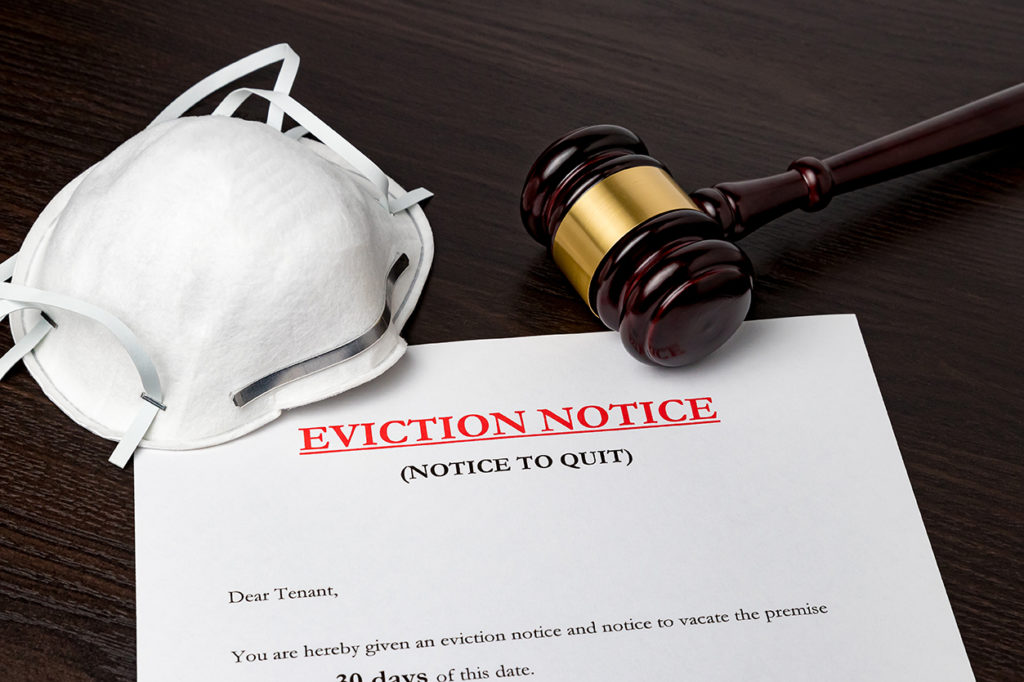The Government’s Covid eviction ban is ending, so what happens now? On Monday, England’s Coronavirus eviction ban comes to an abrupt end. Around a million British households fear losing their homes. According to the Joseph Rowntree Foundation, about 400,000 renters have either already had eviction notices or have been told to expect them.
Eviction notice periods were extended to six months during the pandemic, but have now dropped to four months from 1 June. Before the pandemic, the standard notice period was 2 months in England.
Has The Pandemic’s Housing Crisis Been Avoided?
For those affected by the pandemic, the eviction ban has been a godsend. For landlords, however, it has allowed problem renters a free pass not to pay rent. One landlord, featured on BBC News, has had a problem tenant that hasn’t paid since October 2019 – well before the pandemic. The tenant in question is now in £10,000 rent arrears.
Though thousands of individuals and families have genuinely been affected by the pandemic, and overnight many of them could be left with nowhere to turn. Despite the short-term benefit of the eviction ban, people that have been prevented from working due to the pandemic aren’t having their rents wavered. Instead, their rent arrears has been quickly growing leaving them with a huge debt at the end of it.
Now, renters will have to either pay or find somewhere else to live. Many tenants will find themselves without options.
Some Renters Left Worse Than When They Started
According to a new survey, thousands of renters that have accrued rent arrears during the pandemic face serious issues finding a place to live due to damage to their credit score.
With the Government refusing to support tenants and landlords in tackling COVID related arrears, approximately 210,000 tenants may face severe difficulties in getting landlords to give them somewhere to live in the future. This is a problem that will be ignited overnight when the eviction ban is lifted and will have long-lasting effects on many people.
Even with grants, furlough payments and eviction bans, the most vulnerable members of society still seem to be worse off than when the coronavirus pandemic started. 80% of renters now in arrears were not behind on their rent payments when the pandemic began. 30% of those who are presently in arrears now owe £1,000 or more.
Most tenants in arrears do not qualify for emergency housing support provided by councils to help those who are receiving benefits. The Government has also frozen housing benefit rates, a policy the Institute for Fiscal Studies has branded as “arbitrary and unfair.”
What Happens After The Eviction Ban Ends?
Housing Minister Christopher Pincher has said, ‘As Covid restrictions are eased in line with the roadmap out of lockdown, we will ensure tenants continue to be supported with longer notice periods, while also balancing the need for landlords to access justice.’
Ben Beadle, chief executive of the National Residential Landlords Association, said expecting landlords and tenants to “muddle through” was a bad strategy. Instead, he believes that the government needs to offer a financial package that ensures that benefits cover people’s rent payments. A loan scheme for tenants who need to pay larger lump sums in order to keep their property should be introduced, as we have seen in Wales and Scotland.
A press release from the Ministry of Housing, Communities & Local Government says that there will be four-month notice periods for most tenants until the end of September this year. This goes some way to help out tenants but essentially just pushes forward a massive amount of trouble and misery for thousands of people.
The government has also presented guidelines for a new mediation scheme designed to prevent evictions as the eviction ban is lifted. The mediation process will involve an independently trained neutral mediator, who will resolve issues between tenants and landlords. This will hopefully prevent court hearing as well as evictions occurring as a result of failed conflict resolutions.


